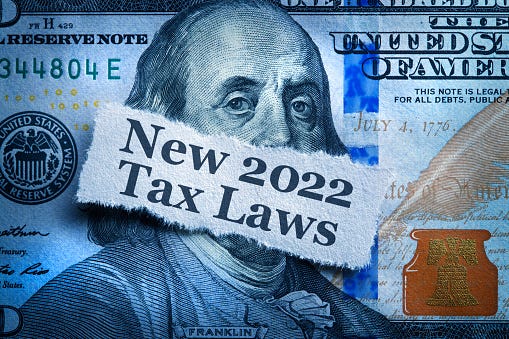“The CARES Act Sent You a $1,200 Check but Gave Millionaires and Billionaires Far More”
Allan Sloan, ProPublica
One of the key ideas that underlies Crime and Punishment is that our country’s laws are written to favour the rich and often have the effect of punishing the poor. And there’s no better example than our tax laws.
I’m far from knowledgable about the intricacies of taxes or their avoidance, but when tax law experts point out both the laws and their glaring loopholes pounced on by the wealthy and uber-wealthy to collectively avoid billions in taxes, I can manage to detect an unfair advantage.
The problem is in the pattern. Many of our laws, whether they pertain directly to taxes, tend to include some provisions that benefit the wealthy. One way is under the guise of “encouraging investment” in low income areas, for example. And the benefits wealthy investors reap in tax savings for their investments, far outstrip (at least in dollars) the money they put into a project. That means impoverished areas receive some help, the government receives a lot less in revenue, and the rich save a ton of money and gain “good will” for their company, which they will shout from the rooftops for decades.
But wait, there’s more to this pattern. When elected officials of both parties see a lack of money in the federal coffers (an increasing national debt and deficit), in good part because the wealthiest Americans are avoiding taxes, they typically become hysterical and slash budgets for every program having to do with helping regular folk, the poor, the elderly and many times those who are poor and elderly. But these same elected officials never seem to think twice about government money spent on a bloated Defense budget, corporate welfare, and tax cuts that mostly benefit the wealthy.
Recent case in point: In late December 2021, President Biden signed into law a $770 billion defense budget for 2022—more than he initially requested, and a lot more than the stalled Build Back Better Bill because its proposed $1.9 trillion cost is spread out over 10 years.
This pattern not only perpetuates, but increases the gap between the wealthy and everyone else.
Let’s return to specific tax breaks for the wealthy. Take a look at the articles I’ve culled for this week’s Sunday Evening Reads (Apologetically published on Monday afternoon because of computer problems!)
— This might be the revelation that surprised me the most: A deep dive from ProPublica into the CARES Act and how many of its provisions benefit the wealthy rather than help individual workers survive pandemic layoffs. The “devil is in the details”…
But when I began looking at details of the legislation, I realized that several of its provisions quietly provided benefits that were worth much more than $1,200 to some upper-middle-class people who didn’t qualify for stimulus payments. Some other provisions provided vastly bigger benefits to the rich, to corporations and to a relative handful of ultra-rich folks.
— And another article explaining the tax breaks for the wealthy embedded in the CARES Act: NPR’s Terry Gross interviews a business writer for the Times, who explains how the Coronavirus Aid Relief and Economic Security (CARES) Act gives several big tax breaks to the wealthy.
But if you spend a little time digging into some of the provisions, you can actually see that there are some provisions in the stimulus bill that were geared towards big companies and wealthy individuals - tax breaks that only affect wealthy individuals and some tax breaks that only are going to affect big companies, and in some cases, companies that may not have been affected or may not be affected at all by the pandemic.
— This article from Bloomberg News explains how “opportunity zone” laws enacted to spur investment became a mega, wealth-building strategy for the rich—a fascinating read.
But the bottom line, based on the reporting I’ve done and the very limited amount of data we have, is that the program has done more to cut taxes for rich people than to improve the lives of people in neighborhoods that really need help.
https://www.bloomberg.com/opinion/articles/2021-11-07/how-do-the-rich-keep-getting-tax-breaks
And finally for the Sunday Evening Reads that have suddenly become Monday Afternoon reads…
— Here’s a primer from the “Center on Budget and Policy Priorities” that explains why the wealthy generally pay less in taxes, and includes excellent charts and graphs that illuminate their points.
I’d love to hear what you think! Were you surprised by any of the specific tax breaks mentioned? Thoughts on what we regular folk can do to change these laws and their gaping loopholes? Please let me know in the comments section below.
If you like this post, please share with everyone you think might be interested.
And don’t forget…





Thank you for your most thoughtful articles. These are not gibberish or repetition of talking points. I am sick of that and the dumbing down of our society! We actually let geckos and ducks and a distorted “general”?? tell us what insurance we need to buy! Think about this! Executives paying big bucks for ads actually choose this because they know we will suck up almost any bull they throw at us and now we accept the same level of crud from many of our “leaders”. Some of this is our own fault. We accept it. We excuse and defend it, somtimes violently. I have not commented on points you have made but I respect the thoughtfulness. Agree or not, you present these very well. Thank you Joan!
This is a fantastic post. IMO, America needs to rethink if we want to consider money a person's property. Instead, I think it'd benefit us to realize that it's a fiat currency designed to help the distribution of goods. Stripping it of its "property" status would really help us institute fair tax policy to avoid the problems you articulated here.
Well done Joan!